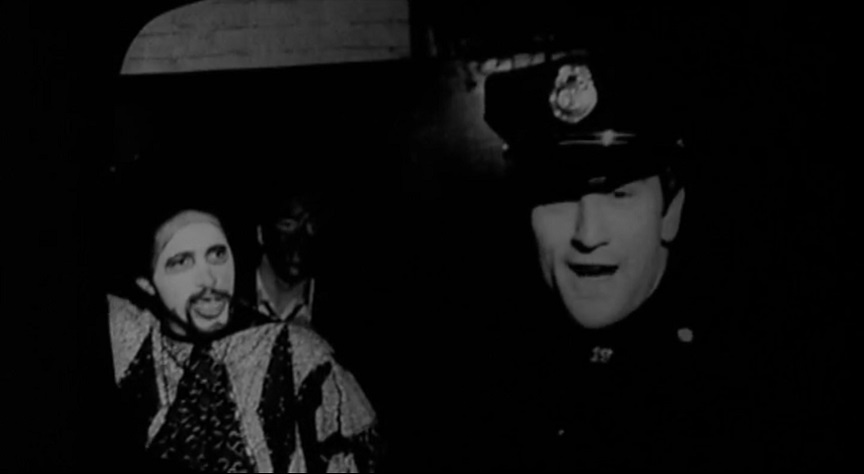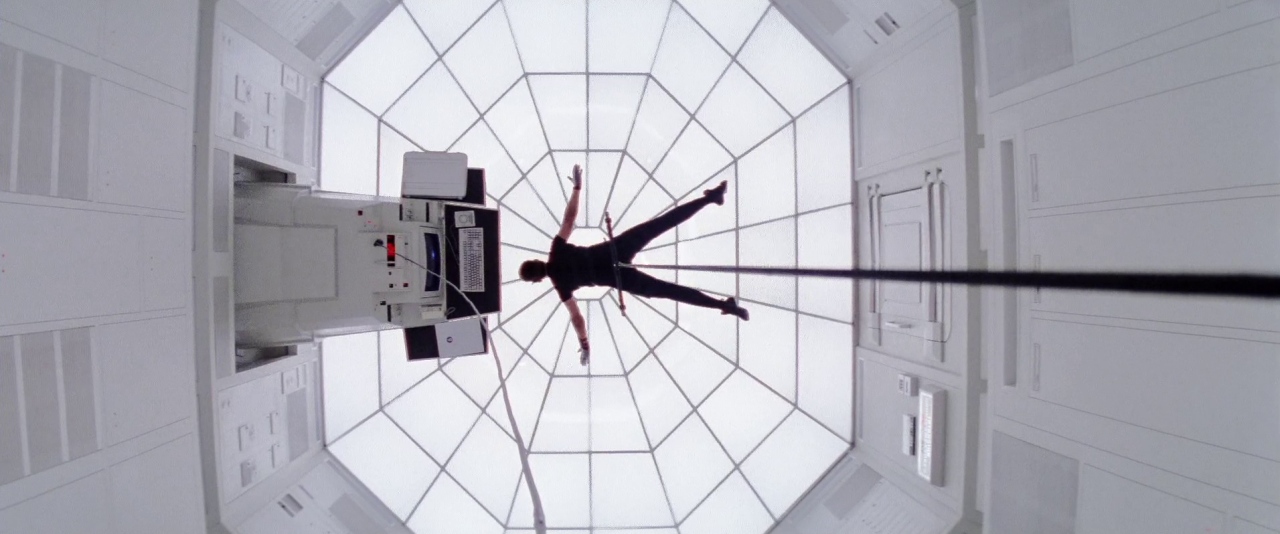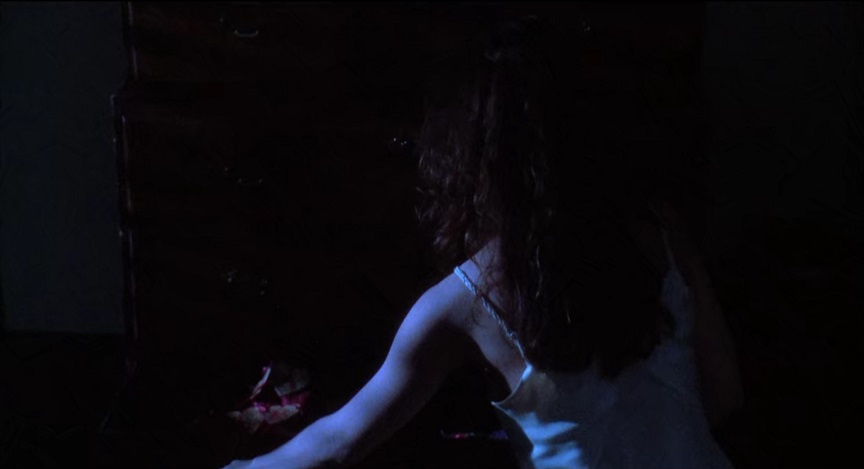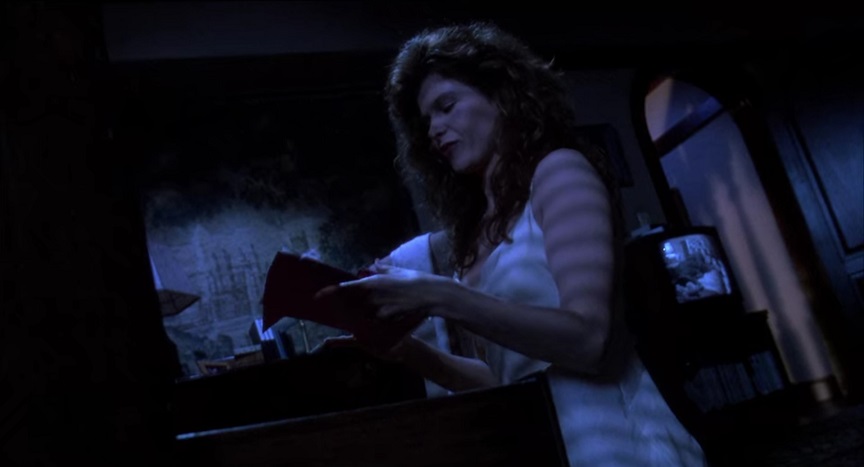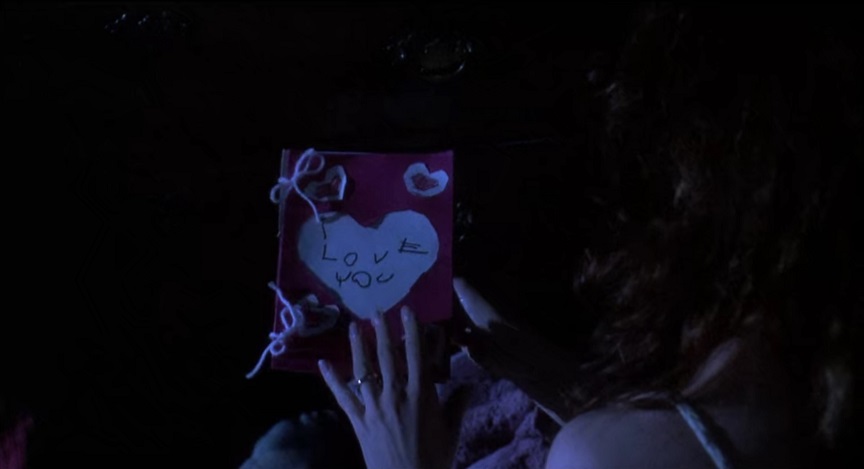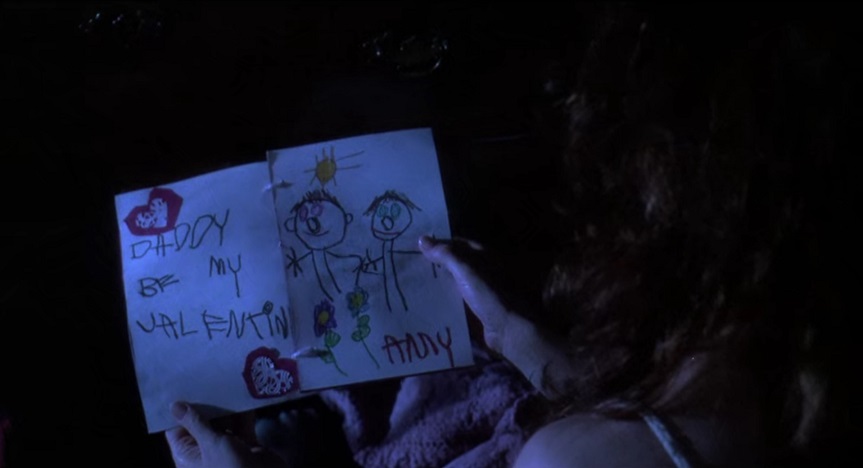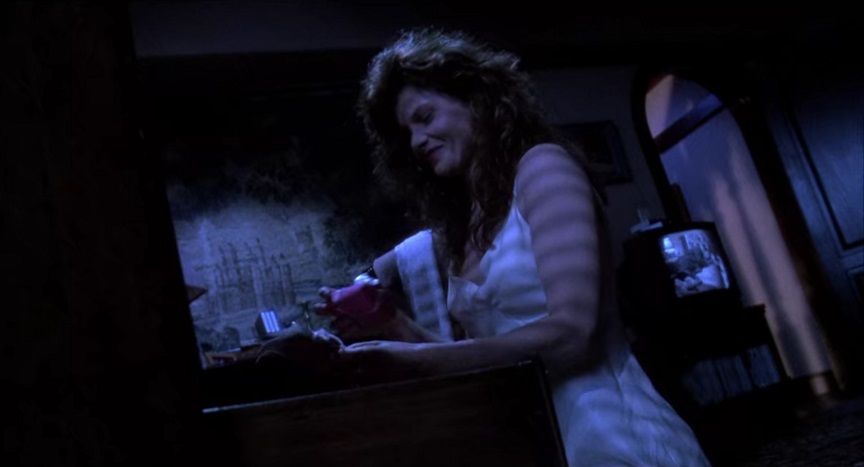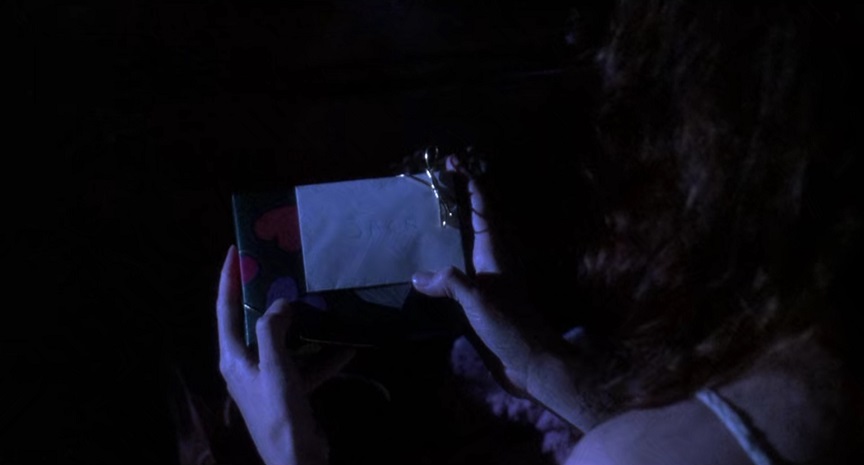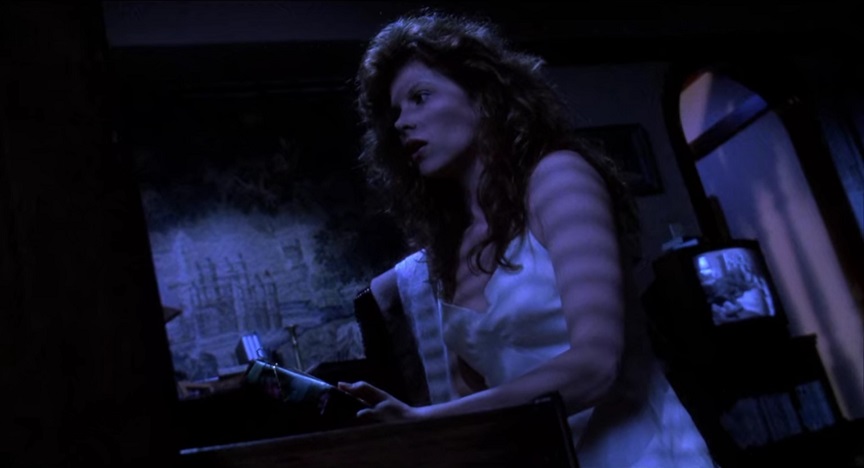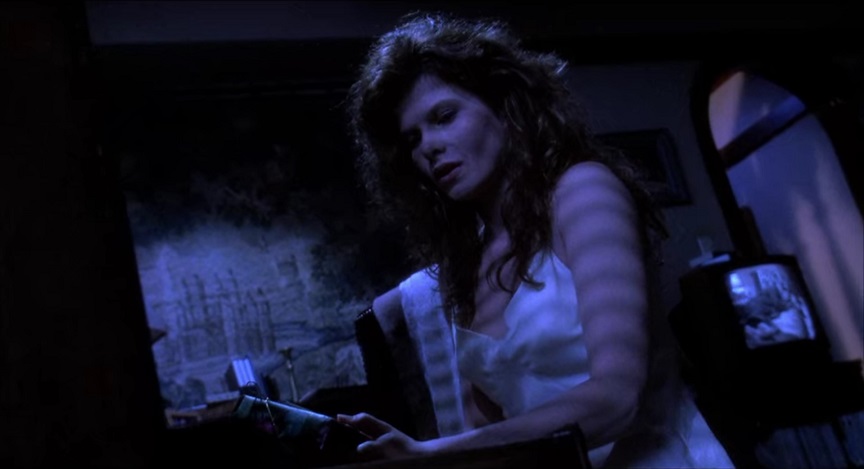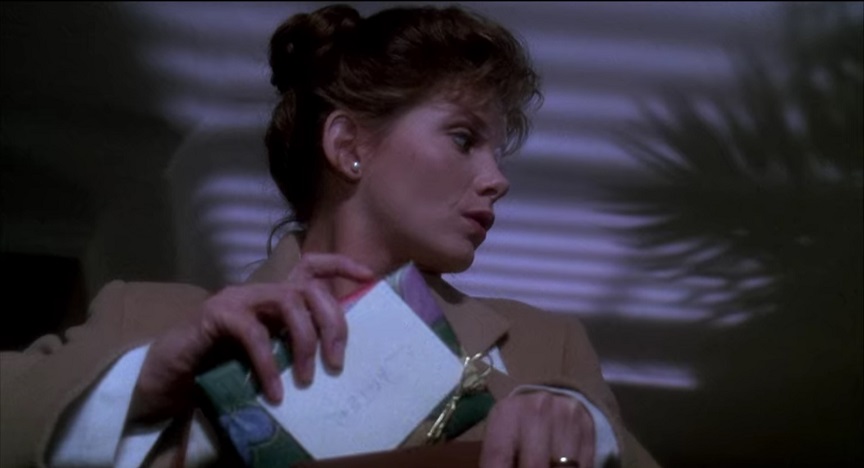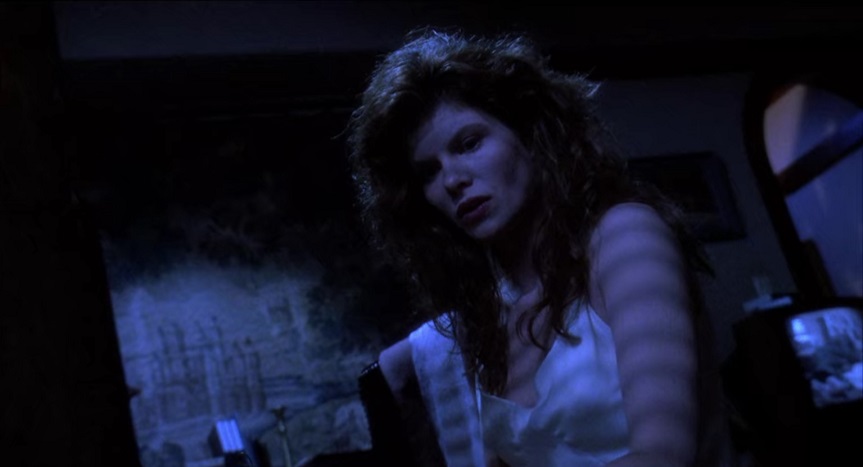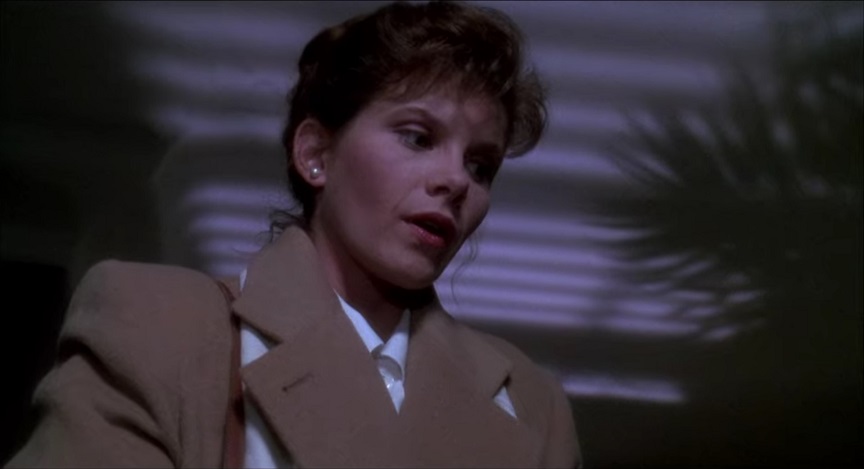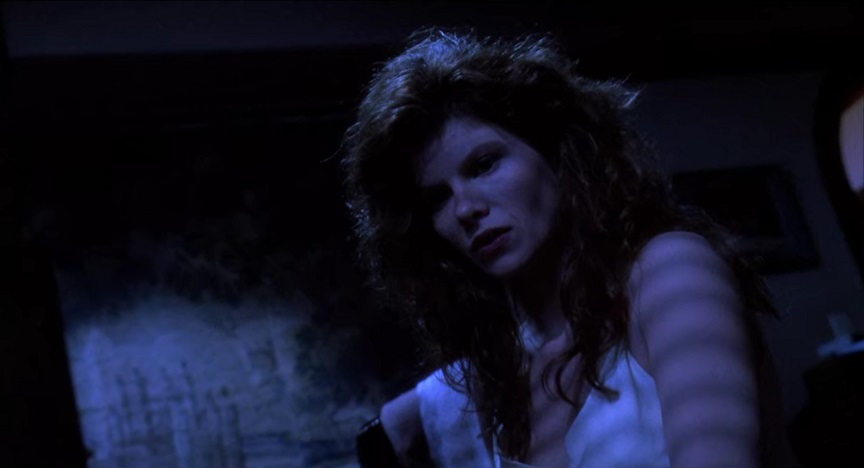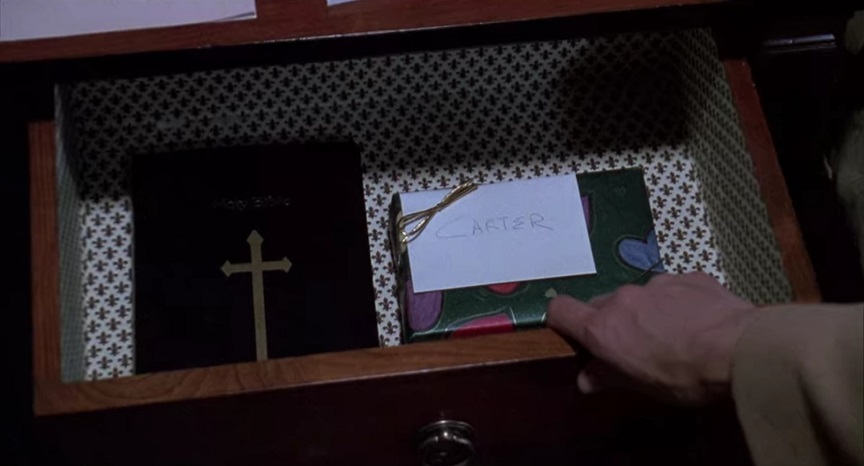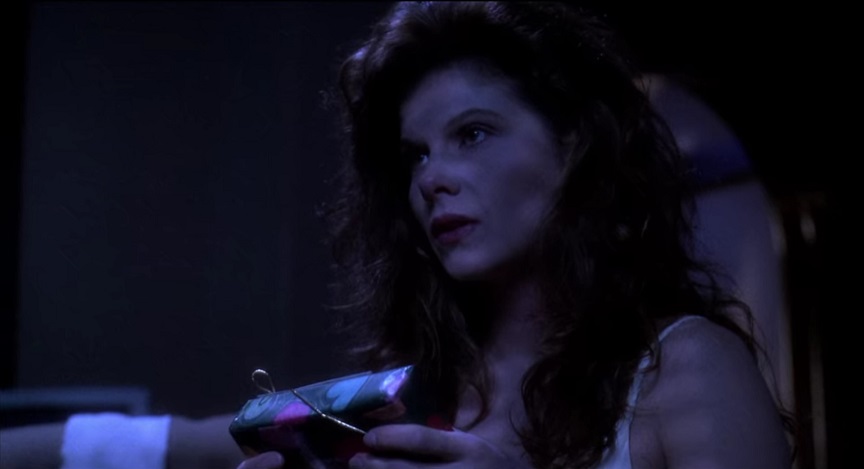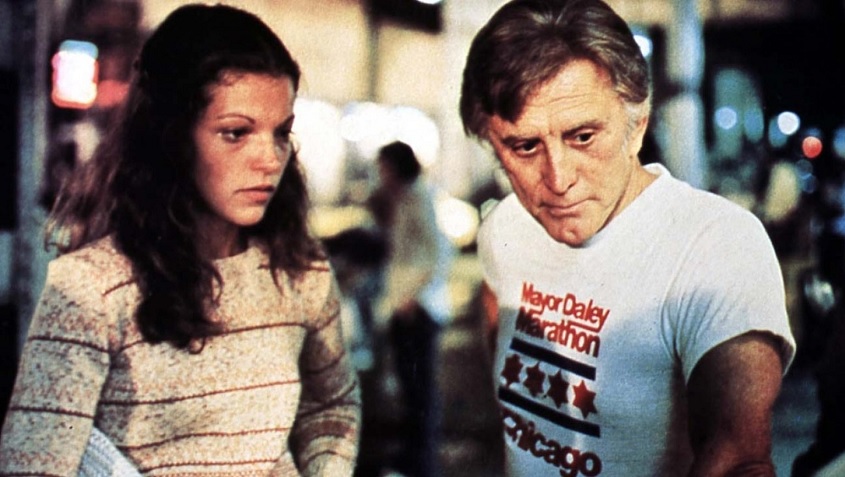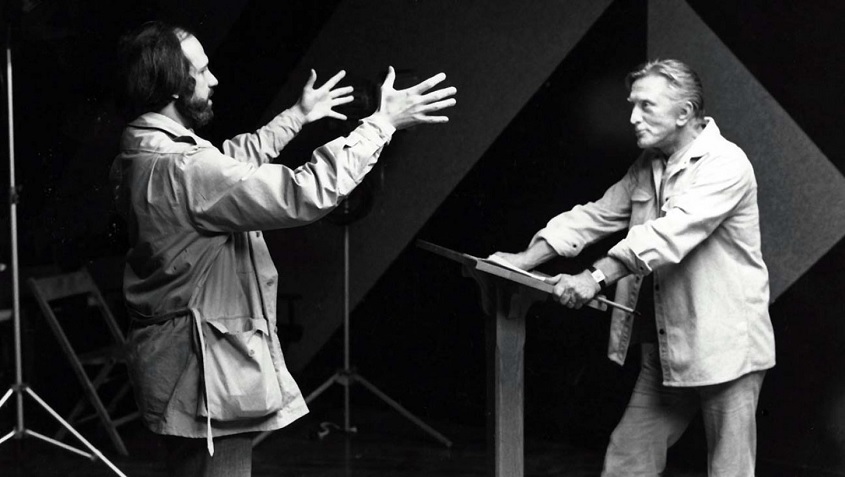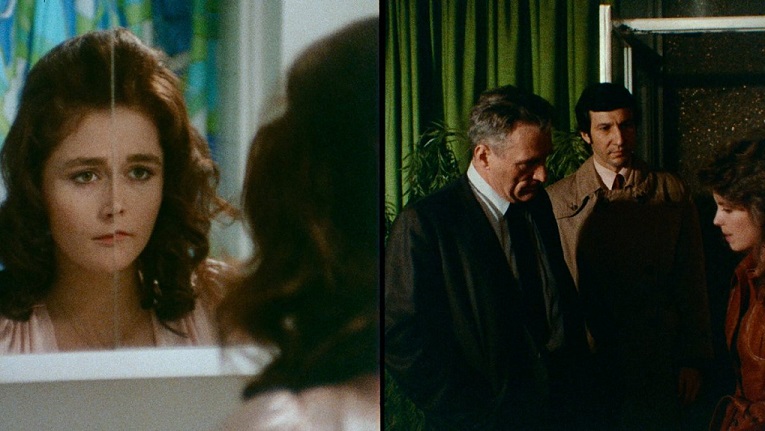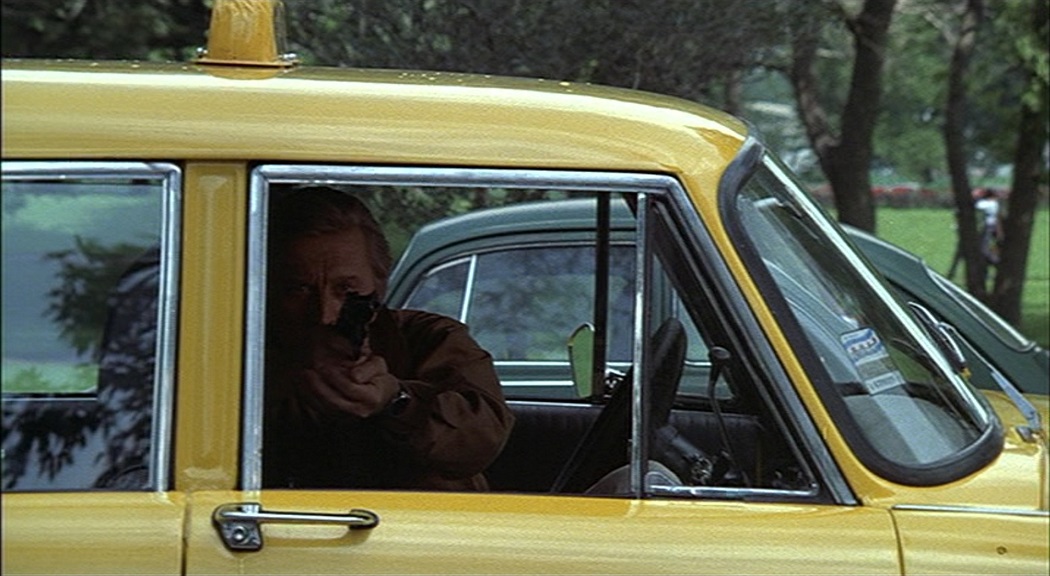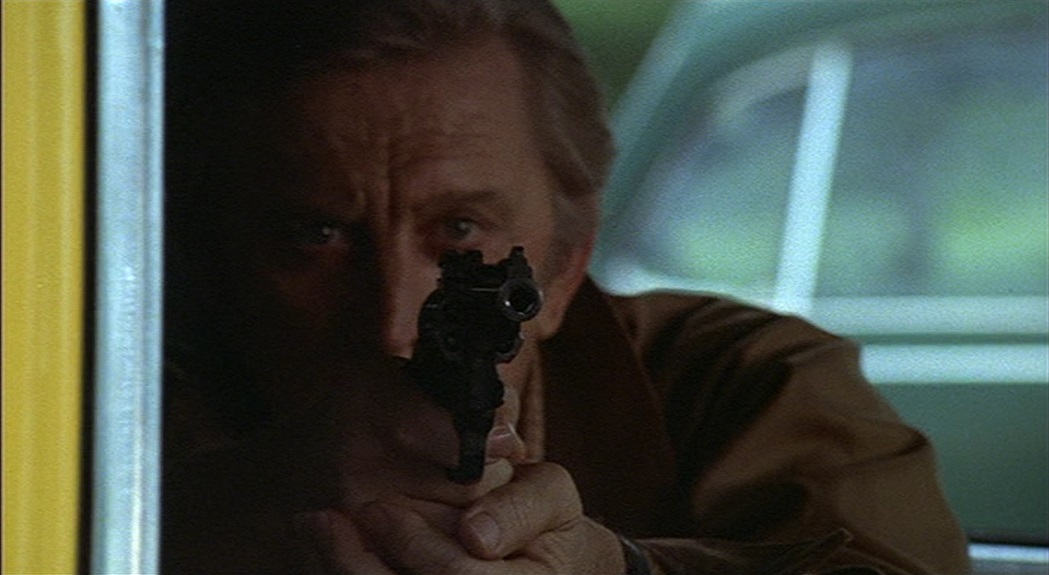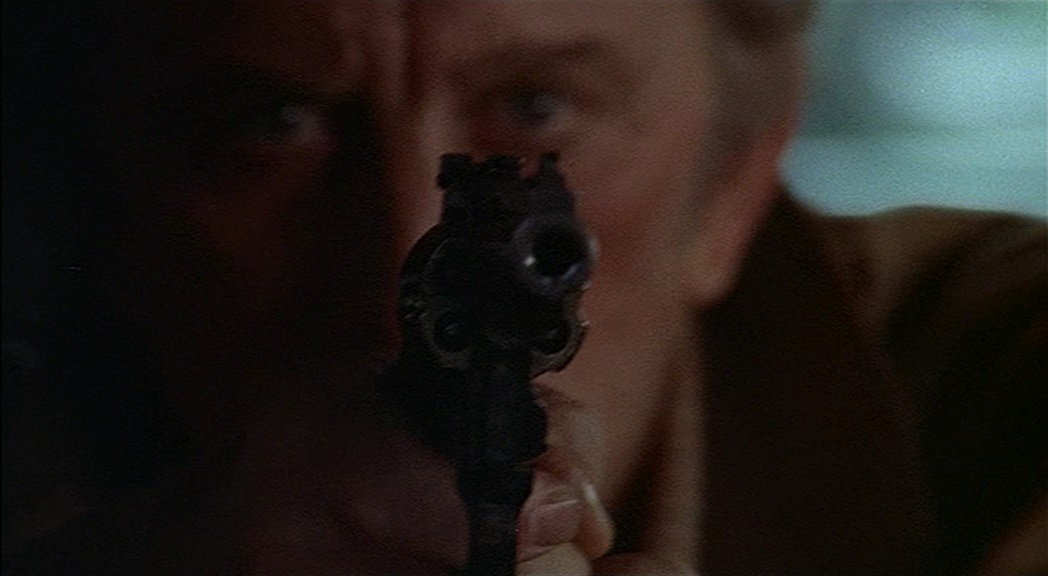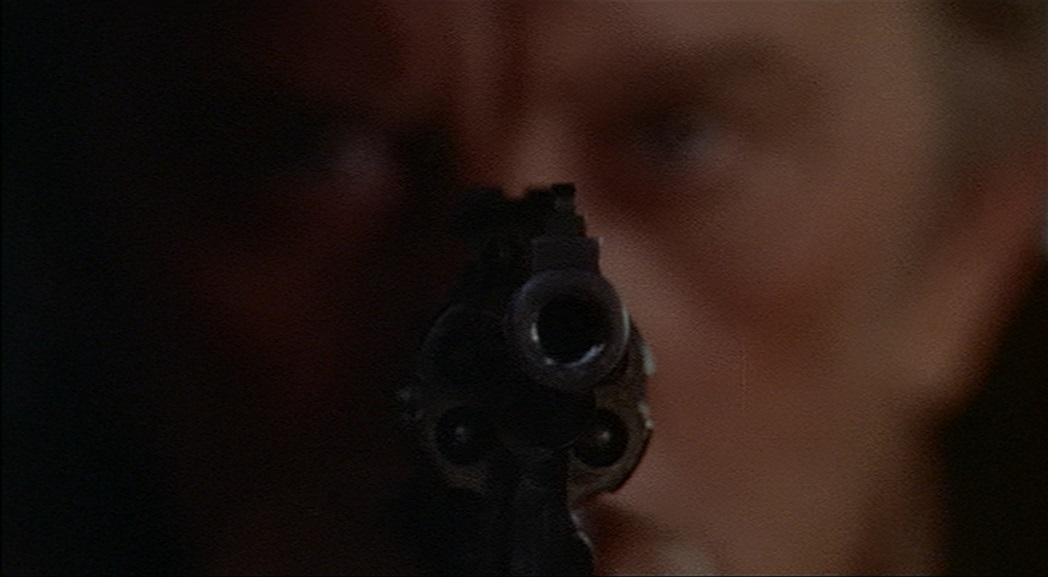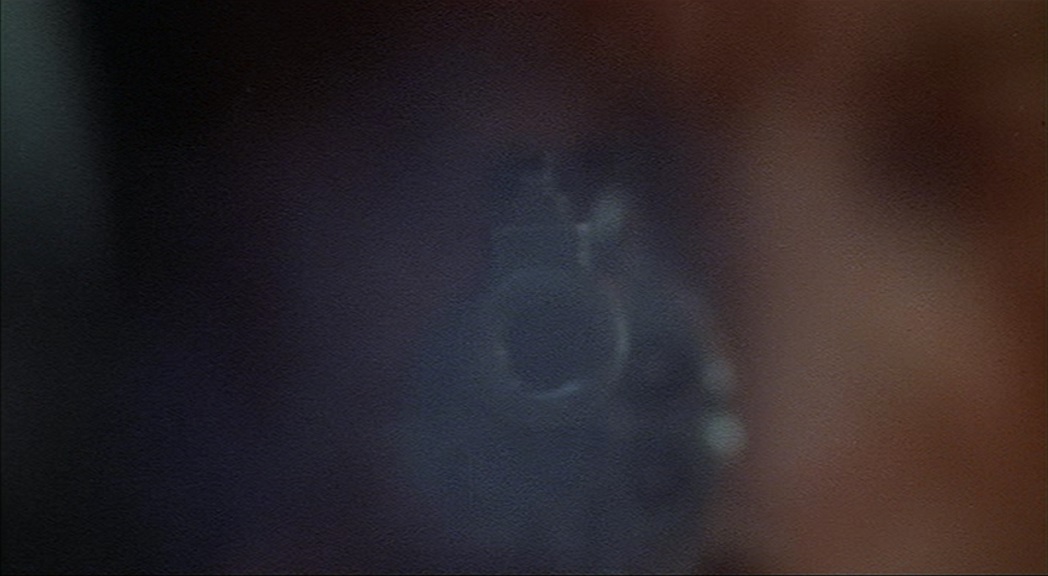ALSO, HITCHCOCK, PECKINPAH, AND CONTEMPORARY KIYOSHI KUROSAWA
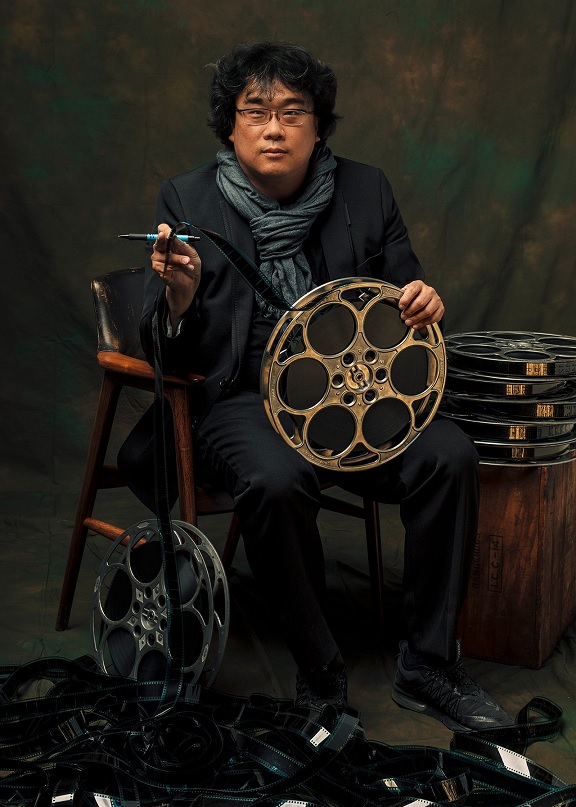
Thanks to Chris Dumas for sending along this link to an AV Club article from last fall, in which Katie Rife interviews Bong Joon-ho, who won Best Director and Best Original Screenplay Oscars earlier this month for his Best Picture winner, Parasite. The interview ends with this bit:
AVC: Who are your favorite directors of all time, and who are some younger directors you’re excited to see more from?BJH: Among contemporary directors, I really admire the horror films of Japanese director Kiyoshi Kurosawa. In the generation above that, I have affection for De Palma. But I think that if you climb up that pyramid [Draws a triangle with his hands.] at the very top is Hitchcock.
AVC: I agree.
BJH: I’ve admired him since I was little, and I think I’m under his umbrella as well.
More recently, three days after the Oscars, Bong visited Minneapolis, Minnesota, where he was the featured guest at the Walker Art Center’s 30th Anniversary Film Dialogue series. Former Variety critic and current Amazon development executive Scott Foundas interviewed Bong on stage. The photo above, from the Walker Center, was published as part of Peter Diamond's recap of the event for Mpls St Paul Magazine.
Diamond, however, left out the mentions of Brian De Palma and Sam Peckinpah, so here's an excerpt from Citypages' Bryan Miller:
Quadruple Oscar-winning director Bong Joon-ho arrived at the Walker for the 30th anniversary of their Dialogues series just days after he made history at the Academy Awards with his masterpiece, Parasite. He told interviewer Scott Foundas he’d taken Monday to rest from the night’s festivities, then boarded a plane Tuesday for Wednesday’s talk that concluded a partial retrospective of his work. He was still reeling.“It happened four days ago. Three days ago?” Bong asked, and not rhetorically. “It feels like three years ago.”
It was, he said, a great thing he needs time to process. “It’s still hard to understand.”
He demurred when former Variety critic and Amazon development executive Foundas inquired about his surreal Sunday night, being crowned Best Director and receiving a Best Picture award, but the auteur opened up when the audience couldn’t stop asking about it during the later Q&A.
Bong admitted he thought Parasite’s best chance was for Best International Feature—pausing to apologize for his presumption to fellow nominee Pedro Almodovar, whose Pain and Glory he called “a beautiful movie”—and after he won he felt tremendously calm, expecting nothing more from the rest of the ceremony.
Then the presenters kept saying his name again, and again, and again.
When he took to the stage to accept the award for Best Director, he had no planned speech. He happened to lock eyes with Martin Scorcese. On the spot he felt moved to pay tribute to the Irishman director, which led to the moving standing-O for Scorcese. After that, Bong said he wished he could share the award with his fellow nominees, dividing it into five parts “with a Texas Chainsaw.” “I still don’t know why I talked about Texas Chainsaw. Very strange,” he admitted on Wednesday, chuckling.
In his homeland of South Korea, he’s known as "Director Bong," a fittingly authoritative title for an artist whose films are so precise and supremely controlled. Yet it belies the jolly nature of the man with the boyish mop of hair, who carries himself with graceful nerdiness and isn’t shy about sharing his big, generous laugh. He arrived onstage wearing all black—from socks to suit to undershirt—but he punctured any dour auteur vibes when he started spinning Foundas’s rotating chair as they turned to watch a clip from one of his films. His genuine humility was on display when he confessed he thought his debut film, Barking Dogs Never Bite, was “disappointing” and “amateurish.”
“I’m so happy Barking Dogs wasn’t included [in the retrospective],” he said, laughing as he waved the program in the air. “Never watch that!”
Seven films into his career, Director Bong has earned a global reputation as an undisputed master. It’s fitting that he’s the first director to make a non-English-speaking Best Picture winner, as he’s truly an international director, shifting as fluidly between Korean and English (with some help from a translator on Okja and Snowpiercer) as he does between film genres.
American genre movies are “the blood flowing through my veins,” he explained; you don’t ever think about the blood in your veins, you just know it’s there. He first glimpsed these American movies in edited form on then strictly censored Korean television, and got an unfiltered look at the films of Hitchcock and DePalma and Peckinpah, which were unedited but also untranslated, on the U.S. military’s Armed Forces Korean Network. Years later he’d see the same movies translated in his college film club and contextualize the images burned into his brain. His aim became to merge “the joys of genre with the realities of Korea.”
Foundas screened clips from several movies while Director Bong shared an array of fascinating tidbits of their origins—like how he wrote Mother for actress Hye-ja Kim and would have scrapped it if she hadn’t agreed to star, or how he pondered the first half of his acclaimed Parasite for four years, but only conceived of the twisty second half of the film in the final few months of writing the screenplay, which dug deeper into the class-conscious themes that pervade his work.
Foundas joked that when they spoke a few years prior, Director Bong explained he had to go back to South Korea to make a smaller movie out of contractual obligation to the producers of Mother—the film that would eventually become Parasite.
“You couldn’t have made it sound less significant,” Foundas marveled.
Director Bong said he felt “happy” and “safe” in Parasite’s intimate world, working with his frequent collaborator, actor Song Kang-ho.
Funny, because nothing about Director Bong’s work feels safe. He’s become the face of the incredibly rich Korean film culture that includes massive talents like Park Chan-wook, Kim Jee-woon, and Lee Chang-dong. This group of filmmakers, Director Bong says, have more of a loosely shared aesthetic as opposed to a conscious collective movement like Dogme 95 or the French New Wave.
“We’re the first generation of Korean cinephiles.”
Updated: Thursday, February 20, 2020 1:45 AM CST
Post Comment | Permalink | Share This Post




